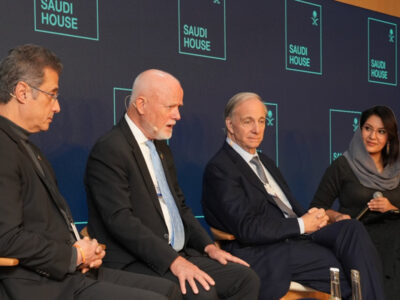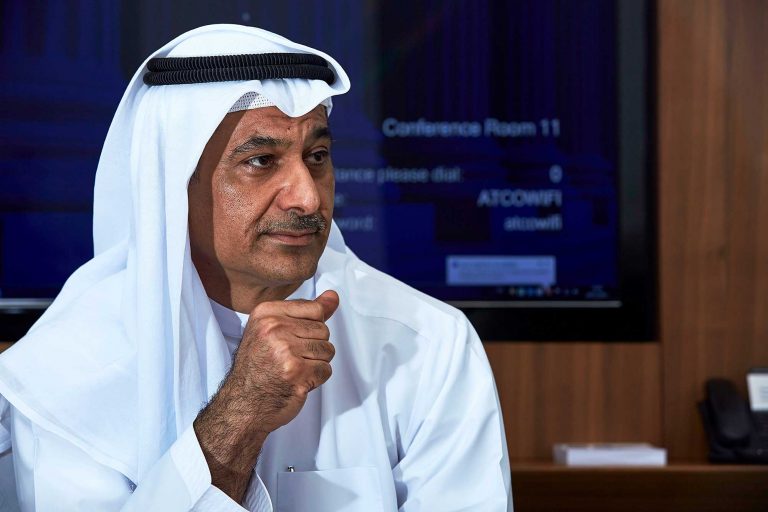The last time Arabian Business met veteran UAE lawyer Essam Al Tamimi, in 2015, he was lamenting the country’s “outdated” legal system and calling for much of its decades-old legislation to be revised.
Among his bugbears were that residents and tourists could still be prosecuted under what he viewed as “antiquated” laws, for example that prohibit holding hands in public.
In a fresh interview conducted last month, the founder of one of the Gulf’s oldest and largest law fims, Al Tamimi & Company, has a wholly different outlook. “Progress is speeding up a lot, decision makers are extremely receptive to change,” he states.
“We still have a lot to do, but the authorities are dynamic; they are interested in change, they hate bureaucracy and they are empowering people under them to make changes, too.”
An example of how UAE laws are being adapted for the 21st century is through the country’s new approach to “petty crimes”. Al Tamimi told Arabian Business in 2015 that the UAE’s ban on kissing and cuddling in public or making rude gestures while driving were “silly”. He pointed out such cases cost time and money to process and clog up the system.
Certain behaviour will not be completely decriminalised, he says today, because the UAE cherishes its traditions and wants others to respect them, too. Last month, a Brit was arrested in Dubai for making a rude gesture at a fellow motorist.
However, there are ways of preventing these cases from going to court. For example, Law Number 1 of 2017 allows the Public Prosecution to settle a petty crime with a fine, rather than referring the matter to court. Surprisingly, this law went virtually unreported in the UAE this year; nonetheless, it is expected to improve public perceptions of how such crimes are dealt with, and cut the costs of stringing out the case.

Al Tamimi & Company is one of the largest law firms in the Middle East with 17 offices across nine countries, the newest being in Al Khobar
Today, 95 percent of those crimes, which can offend members of the older, Emirati generation in particular, are settled over the counter by way of a fine, Al Tamimi says. “Law enforcers are no longer focussing on running after somebody who has given a rude gesture to somebody else. They are focussing on the bigger crimes and overall security of the community,” he says. “People don’t want to lose their culture and tradition, but at the same time they don’t want people to suffer for something they either did not know about or did by mistake.”
Other UAE laws are undergoing reform. Construction laws have been updated to give more protection to off-plan investors; litigation laws are broadening out to make way for arbitration – an increasingly popular way of settling disputes out of court – and authorities are drafting laws to regulate technology, e-commerce and social media. And, of course, taxes are being introduced to speed up economic development, requiring legislation.
“They [decision makers] are hungry for the best technology, the best business practices, the best procedures throughout the UAE – I really sense that here in the community,” says Al Tamimi. “People are digesting the fact that with such huge advances in IT and other technologies across the world, we are actually on the curve of change.
“Things are not going to happen in 15 years in the same way they do now, whether it’s your banking transactions, applying for a licence or shopping in the mall,” he continues. “There is a very good understanding in the community here that we are on the curve of change and [the UAE] wants to be a part of that.”
Having said that, Al Tamimi claims to have seen slower growth in the domestic technology market than he expected. “We have just hired a new head of TMT [technology, media and telecoms], Stuart Davies, because of the advances coming in, but, actually, I’m surprised this area of practice has not taken off quicker.

A new law introduced this year allows petty crimes to be settled with a fine rather than in court
“Despite the national push to attract digital firms, I have not seen huge evolution in our practice, or the sorts of businesses that operate here. We are mainly providing services to international [technology] businesses with UAE branch offices overseeing regional growth or acquisitions. I think the domestic market is only just beginning.”
With the highly anticipated launch of Mohamed Alabbar’s Noon.com e-commerce venture last week, and, of course, Amazon’s acquisition of UAE-based Souq.com earlier this year, the market certainly looks set to take off.
Al Tamimi says telecoms firms, too, are grasping the mantle of change and are set to undergo huge transformation in future. “Regional telecoms players are realising the market is changing and they need to shift their business models,” he says. “VOIP [voice over internet protocol services, such as Snapchat] are growing whether they like it or not and all that data is being provided for free and the telcos aren’t charging for it.
“There is a new move in Europe to do something, legally speaking, about that – for example, by tariffing big companies like Google for using a country’s telecommunications system.
“Our telecoms regulator in the UAE [the Telecommunications Regulatory Authority] is very switched on and has a good grasp of what’s going on in the world. Therefore, I believe the telecoms standard we have got used to in the past will shift and become more sophisticated.”

Dubai’s DIFC Courts is digitising its caseload
Regional footprint
Al Tamimi & Company is one of the biggest law firms in the Middle East – and the largest Emirati one – with 760 staff, including more than 60 partners, across 17 offices in nine countries. The last office it opened was in Al Khobar in 2015, which was “profitable from day one”, Al Tamimi claims. Overall, he says the firm is seeing continued year-on-year growth across its practices though figures are limited because the company is private. He says it recently conducted feasibility studies on expansion into new markets.
The firm examined Tunisia, Lebanon and Morocco and concluded there was “insufficient appetite” among clients to warrant entry into the first two markets. Morocco, however, was different. “Considering the region, it’s a very stable country that has attracted good investment from the GCC and internationally. It’s a country that’s well liked by Europe, America and the Gulf, and has managed to develop itself through laws and regulations to make it easier for people to contribute to its future,” Al Tamimi says. The firm is hoping to establish a presence in Morocco in the next 12 months to help it service North Africa.
In the Gulf specifically, Al Tamimi says growth is being driven by three main areas of law. First, finance and mergers & acquisitions (M&A) “is still a very active department for us”. Second, family business work has grown a staggering 40 percent over the last 18 months, the lawyer reveals. “GCC family businesses are trying to restructure themselves for a new generation to come in without fragmenting the business. So, we create family constitutions for new management teams to be able to oversee the changes when the chairman passes away.”
He adds: “This area of practice has grown a lot because the younger generation, many of whom are well educated and worldly, starts seeing bad examples around them of families getting into internal conflict; where the chairman or founder has died and things have got ugly and affected the running of the business. They don’t want to get into that.”

Real estate laws are among the UAE regulations that have undergone reform
Shareholder disputes in general account for much of the firm’s work. “They are like a very ugly divorce,” Al Tamimi says, noting that the UAE’s new insolvency law has encouraged parties to resolve matters out of court. “It’s a very good law. I have yet to see it used in front of a judge, but we have used it as a tool to get people to sit down with us and settle.”
The third growth area is financial crime, or ‘fincrime’. Companies are under increasing pressure to comply with new global regulations that tighten up on transfer of funds, internal banking procedures, due diligence on clients and sourcing of finance – all intended to fight corruption and money laundering. Al Tamimi says this has resulted in more work for lawyers.
“All across the world, companies are having to tidy up their practice and follow certain standards. The UAE is hot on this; the regulators are very focussed.”
In addition, arbitration is set to be a huge growth area – particularly once the UAE finally implements a long awaited arbitration law on which Al Tamimi has advised. Although it has taken several years to draw up the legislation – Al Tamimi claims to have seen seven versions – the latest draft is “perfect”, he says. “I could not say good words about any of the drafts I have seen in the past; it was a case of too many cooks in the kitchen, or the wrong decisions made by the wrong people, until the draft that came out was terrible. “This recent one I was extremely happy about. We have of course made some comments, but even if it was enacted in [its current form] it would still be a very good law.”
Arbitration is a form of alternative dispute resolution that takes place outside the courts. Lawyers are not the only people who can be appointed to hear disputes. Any independent expert in a particular field can act as an arbitrator. Al Tamimi believes that, as people seek to keep their costs down and resolve issues in a quieter, private manner, arbitration will become “the future of disputes”.
The future of arbitration
Dubai has all the ingredients to become an international centre for arbitration along the lines of Singapore, Paris, New York and London, according to Al Tamimi. He cites Dubai’s strong, stable business environment, good hotels, good conference centres, good connectivity, and strategic location. “I have a strong view that arbitration is going to take the lead over the courts in future,” he says, of the role the city will play in future.
Not that this will sound the deathknell for court-led litigation, Al Tamimi adds, hastily. “We do not envisage shrinking our litigation team. Litigation is getting more sophisticated in the region as the economy and trade patterns become more complicated. Bigger cases, with bigger amounts [of money at stake] and more complex issues inherent, require specialist lawyers, and decisions will still need to be enforced in the courts.”

Al Tamimi & Company’s family business practice has grown by around 40 percent in 18 months
A source of lingering frustration for Al Tamimi is a lack of skilled Emirati lawyers in the country. He claims this is a “still a concern” despite his own firm’s efforts to increase internships for Emirati law students and forge links with higher education providers to promote careers in the industry. He says he complains about this issue in conversation with “people high up in the UAE community” all the time. “I complain in the sense that I’m happy if there is no competition to me in future – there are only four or five [Emirati-run law firms] leading the market here and I’m happy to be in that league.
“But even with the UAE’s sophistication, the beautiful commerce it has, the nice infrastructure it’s put in – we are still lacking good, qualified, well-trained Emiratis coming into the legal profession.”
And that is despite a huge need, he says. “Governments, the private sector, national assembly, judiciary, all are hungry for good, qualified lawyers. Every single ministry, for example, needs a team of lawyers to help them with their legal issues, whether it’s HR, new contracts, real estate, and now VAT [value added tax], which requires teams of 15-20 lawyers to deal with all the new regulations.” Al Tamimi & Company launched a dedicated tax practice in March, headed up by Shiraz Khan, to oversee the sector.
With Emiratisation, even international law firms want more Emiratis. They are often cheaper, Al Tamimi argues, as they do not require ex- and re-patriation, housing, sponsorship and visa costs, and they also provide firms with access to the “back streets” of UAE society.
“But, unfortunately, we don’t have the qualified people and the bottlenecks are in the education system,” he says. Al Tamimi & Co launched its Leadership Academy in 2012, an apprenticeship scheme that recruits around 10 young lawyers every month, and seeks to deepen their training and expertise.
But Al Tamimi says there still needs to be a higher standard of university training and better promotion of careers in law among students from an earlier age. “The teaching is so academic,” he says. “Students think it’s all books and paperwork; there is no touchpoint with [how law is practiced] in the real world.”
As with other issues Al Tamimi raises with his peers, he is confident in time the problem will be solved. “The nice thing about it – and what makes you proud to be in this country – is that [decision makers] are not in denial. They know there are things they can improve. We talk to them about things, they take notes and they deal seriously with some of the issues. They do not try to basically shuffle them under the carpet.”
It is unlikely Al Tamimi would permit that to happen.





